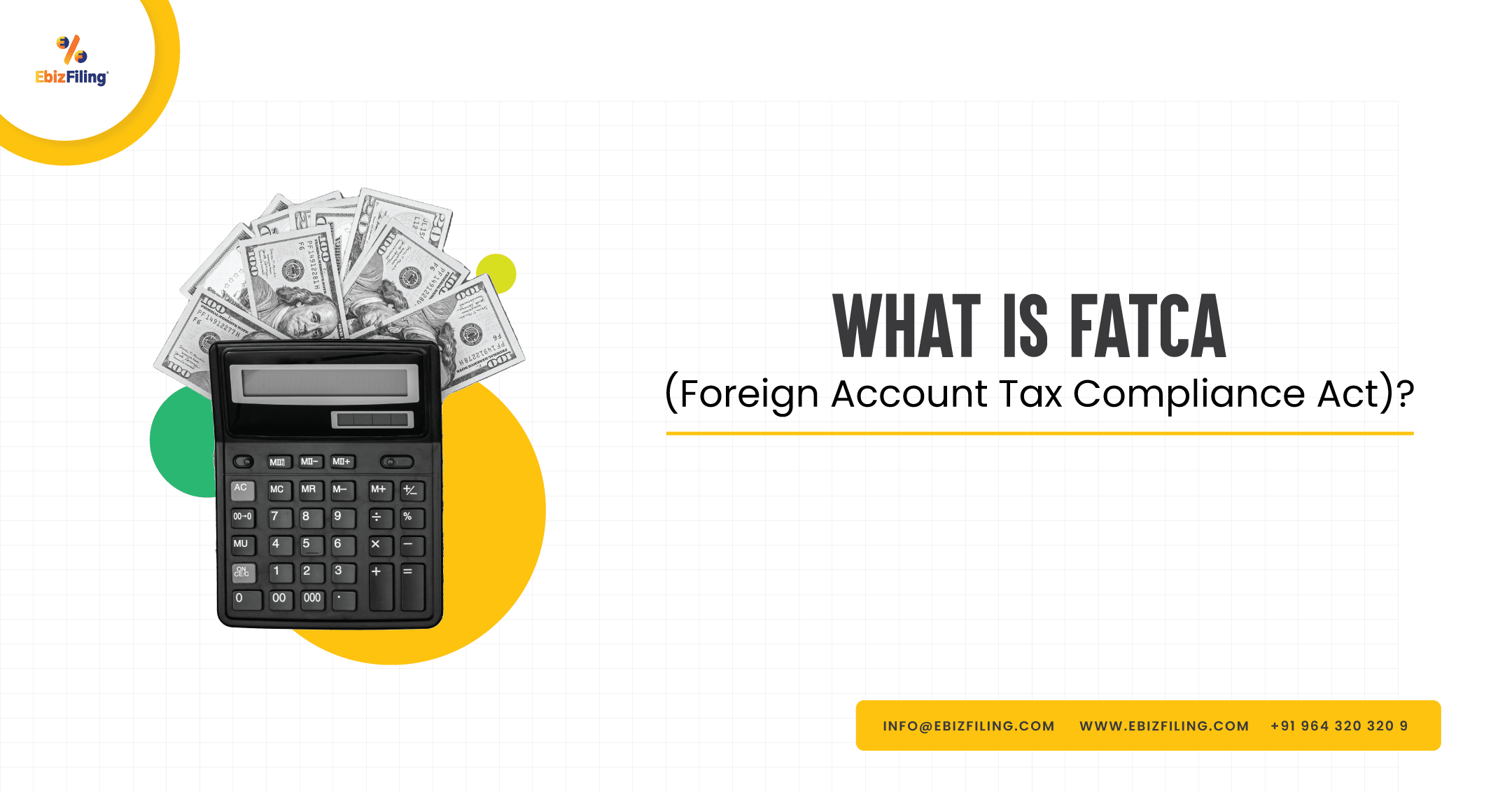
-
December 16, 2022
What is FATCA (Foreign Account Tax Compliance Act) and How to file FATCA Return?
Table of Content
Introduction
The Foreign Account Tax Compliance Act (FATCA) is a significant step forward in the United States’ efforts to combat tax evasion by US residents with accounts and other financial assets offshore. The Treasury Department and the IRS are continuing to develop FATCA guidance. In this article information on “What is FATCA (Foreign Account Tax Compliance Act)?”, Exemption under FATCA, “How to file FATCA Return?”, and Penalty for non-compliance.
What is FATCA (Foreign Account Tax Compliance Act)?
The FATCA was enacted as part of the Hiring Incentives to Restore Employment (HIRE) Act in 2010, with the goal of increasing transparency in the global financial services sector. Form 8938 is used to report any foreign account holdings, and there are severe penalties for failing to do so.
FATCA aims to eliminate tax evasion by American individuals and businesses who invest, operate, and earn taxable income in other countries. While maintaining an offshore account is not illegal, failing to disclose the account to the Internal Revenue Service (IRS) is, because the United States taxes all income and assets of its citizens on a global scale.
Exemption under FATCA
Some foreign financial assets are exempt under FATCA reporting, according to the IRS. A financial account maintained by a US payer, for example, would be exempt. A US payer in this case includes:
- A foreign branch of a financial institution based in the United States
- A branch of a foreign financial institution in the United States
- Certain US corporations’ foreign subsidiaries
Beneficial interest in a foreign trust or foreign estate is also exempt from FATCA reporting if you were not previously aware of the interest as a FATCA exempt beneficial owner. (However, if you receive a distribution from a foreign trust or estate, the IRS will not accept a claim that you were unaware of.)
Finally, any social security, social insurance, or similar programme administered by a foreign government is exempt from FATCA reporting.
How to file FATCA Return?
If you are a financial institution, register for the FATCA reporting obligation using the Revenue Online Service (ROS). You must register as a reporting entity if you do not have access to ROS. This can be accomplished by filling out a Reporting Entity Registration Form. You can register your client through ROS if you are an agent representing a reporting entity. You will be able to access ROS and register for the FATCA reporting obligation once you have been registered as a reporting entity.
Once registered, FATCA returns can be submitted to Revenue via ROS. For more information on the return format, consult the IRS guidance and the Filing Guidelines for Foreign Account Tax Compliance Act (FATCA).
Penalty incurred for non-compliance
Failure to file Form 8938 results in penalties. The IRS can levy a $10,000 failure to file penalty, a $50,000 additional penalty if the guilty party continues to fail to file after being notified by the IRS, and a 40% penalty for understating taxes attributable to non-disclosed assets.
After an entity files its return for income over $5,000 that is not reported and is attributable to a specified foreign financial asset, the statute of limitations is extended to six years. Furthermore, if a party fails to file or properly report an asset on Form 8938, the statute of limitations for the tax year is extended to three years beyond the time when the required information is provided.
If the failure was due to a reasonable cause, the statute of limitations is extended only for the item or items related to the failure, not for the entire tax return. If the failure to disclose is deemed reasonable, no penalty is imposed; however, this is decided on a case-by-case basis.
Suggested Read: Tax System in the USA
Conclusion
The Foreign Account Tax Compliance Act (FATCA) requires US citizens living in the United States or abroad to file annual reports on their foreign account holdings. Form 8938 must be completed and returned to the IRS. There are different filing requirements and holding thresholds depending on whether an individual lives in the United States or abroad. If you have assets in another country, you should check to see if you need to file, as there are severe penalties for failing to do so.
Company Registration in Florida, USA
Register C- Corporation or LLC in Florida. Register any kind of Limited Company in Florida, USA form India with Ebizfiling
About Ebizfiling -





Reviews
ALEIXO ANTONIO DA COSTA
30 Sep 2021Was a great experience and value for money service, recently did a company incorporation with ebizfiling.
BUKBUY INTERNATIONAL
15 Dec 2018Excellent Service!
Jenny D’costa
29 Mar 2018I bet, Ebizfiling would never disappoint you. They have top-notch solutions and a wide range of services. Great going!
March 9, 2024 By Siddhi Jain
Important Statutory Due Dates For OPC Annual Filing For FY 2023-24 An OPC, or One Person Company, is a company with a single member. Unlike Private Limited or Limited Liability Partnerships, OPCs have fewer compliance requirements. However, it is crucial […]
March 16, 2024 By Siddhi Jain
A compilation of all the ROC (Company) Filing Due dates for Financial Year 2022-23 (AY 2023-24) Indian companies are required to keep track of important due dates for their annual filings at the start of each financial year. This applies […]
April 8, 2024 By Siddhi Jain
How to Apply for PAN Card for NGO & Charitable Trusts? Introduction In India, the issuance of a Permanent Account Number (PAN) card is a crucial requirement for individuals and entities alike. For trusts and charitable organizations, obtaining a PAN […]